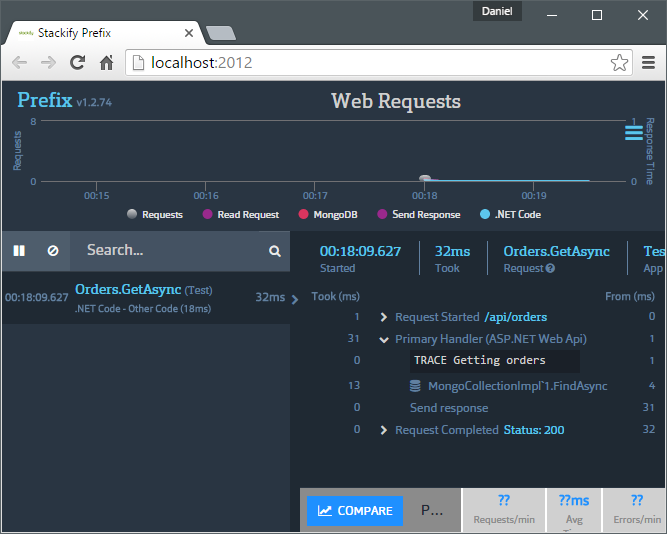

Add the "AddAsync" task to the list of tasks to run them after all Set user properties to identify this blob in message broker. This will separate the message in logic queues to control the parallelism per execution. Body will be the JSON of a object converted to bytes.īody = new BinaryData((new BlobExecutionQueueMessage(blob.PartitionKey, blob.RowKey, workerNodeName, null).GetObjectAsJsonAsync())),ĬontentType = , Open your App.config in the StarterKit.Service project.

Masstransit azure function update#
MessageId = string.Join('|', blob.PartitionKey, blob.RowKey), Before we update our project IoC with the Azure SB transport, we need to add the Azure Key Name and Shared Access Key for the Service Bus we made in the previous section. The message ID is necessary to prevent duplicate entries in message broker. ServiceBusMessage message = new ServiceBusMessage() String workerNodeName = _workerManager.GetWorkerNodeName(controlMetadataEntity.GetBlobMigrationStrategyIdentifier(), Convert.ToUInt32(chunkIndex), controlMetadataEntity.RowKey) įoreach (BlobMetadataEntity blob in chunks.ElementAt(chunkIndex)) Message Insertion: for (int chunkIndex = 0 chunkIndex < chunks.Count() chunkIndex++) ServiceBusTrigger: public async Task RunAsync( string messageBrokerMessageString, FunctionContext context)
Masstransit azure function code#
I leave below code snippets regarding the insertion of messages and trigger It's configured to receive sessions, and when I insert the messages, it's inserting with the correct "SessionId".īut when executing the trigger it executes only one session message at a time.Ĭan someone help me? I want to run all session messages at a time. If you have multiple instances, and a hard limit of say 100 connections to your back-end. This setting only affects the receive endpoint on that service instance. I have an Azure Function with the ServiceBusTrigger trigger With MassTransit, for a given receive endpoint, ConcurrentMessageLimit should be used to limit the number of concurrent consumers executing on that particular receive endpoint. Will it be sure fn1 trigger wont get fired? The second part of the situation is, consider when fn1 itself is writing a message into the queue. Var sendEndpoint = await _bus.GetSendEndpoint(IM圜ommand.QueueUri) Īwait sendEndpoint.Send(new M圜ommand ") Services.AddMassTransitHostedService(true) The producer service: private void ConfigureMassTransit(IServiceCollection services, string asbConnectionString) Is there a recommended way to do this? :thinking: Are receive (and subscription endpoints) something that should be configured globally by all services, so that "first one wins"? When the consumer service starts, I would have hoped that it would reconfigure the existing queue with the specific config that I want, but it does not change anything ( AutoDeleteOnIdle, MaxSizeInMegabytes, etc). If my producer service starts and produces a message before the consumer service has started, then a new queue will be created with default values. The problem is that it leads to a kind of race condition when new messages/queues are added.

Uses I send a message to a specific queue, before the queue has been created, a queue will be created automatically for me. You can configure the message filter on auditing as below. Namespace AuditAzureTableWithTableSupplied # Audit Filter


 0 kommentar(er)
0 kommentar(er)
